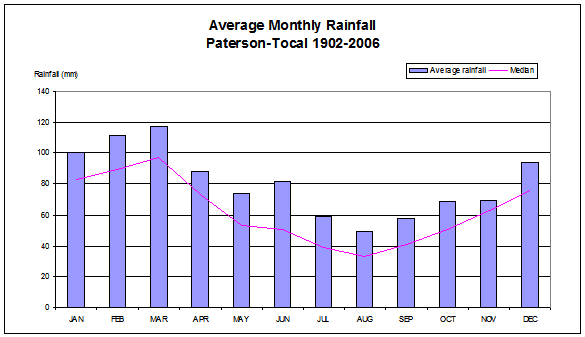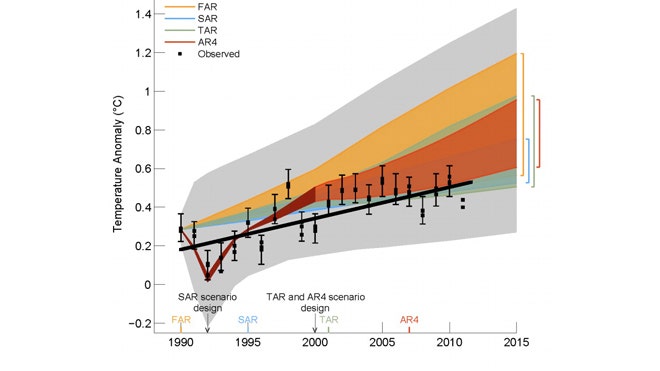I will come back to the other points but that last paragraph is annoying.My creationist comment is entirely accurate.Thats fair, except your creationist comment is out-RAGEOUS. You know that they are not the arguments I refer to. Most scientists who have jumped on the ACC train (rightly or wrongly) have invested WAY too much reputation to ever even look at opposing evidence, mostly due to the political and social pressure. And that is not science. I am not going down this path, we are not going to converge.Good science welcomes informed, well-researched criticism. The sort of horseshit we actually get, about 'warming has stopped since 1998!' and 'yeah, but what about the SUN then, huh?' and 'carbon dioxide is plant food!', isn't remotely either of those things."science". pfft.
Good science welcomes criticism.
If people get upset because people are criticizing it, its not good science.
Don't confuse the economic and political sides of this with "science".
I entirely agree that the economically/politically optimal way of addressing the AGW issue is a matter for debate (and it's a debate that will never be solved, because we only get one shot at this and will never get to go back and give the other options a try), but arguing against the fact of AGW is like arguing against the fact of plate tectonics or quantum mechanics or evolution at this point.
Did you vote for Bandt by the way?
http://www.news.com.au/national-news/greens-mp-adam-bandt-tries-to-make-political-mileage-out-of-fires/story-fncynjr2-1226741900565
About sums it up for me.
Both climate change denialism and creationism(/"intelligent design" science) are phenomena that grew from ideologies and political lobbying efforts rather than observation. I strongly recommend the book "Merchants of Doubt" which tracks the history of these, and related anti-science campaigns such as the kickback against CFC restrictions, the backlash against the banning of DDT, and the coverup of the evidence linking smoking to cancer.
Both climate change denialism and creationism rely heavily on the high-rotation testimony of a handful of 'renegade' scientists (such as Behe for the creationists, and Carter, Lindzen etc for the climate change denialists) who provide a quasi-intellectual figleaf that allows adherents of these beliefs to pretend that significant scientific disagreement still exists on the fundamentals of evolution/climate change science. By virtue of their prominence in political debate, the publications and research of these contrarian scientists are read and examined extremely thoroughly and have all been pretty comprehensively debunked by the wider scientific community, not that this seems to dampen the enthusiasm for them in creationist/denialist circles.
Both climate change denialism and creationism are very prone to cherry-picking data. THe 'no warming since 1998' crowd are the absolutely typical example. They also are very fond of pouncing on minor incorrect predictions, or aspects of the science that more recent research has disproven or which are not yet fully understood, and acting as if this routine act of scientific self-correction or uncertainty in a complex field invalidates the entire decades-long field of study and massive evidence body of the scientific fact that they oppose.
Neither climate change denialism nor creationism seem at all interested in developing a meaningful alternative theory to replace the one that they oppose. Creationists don't do any actual research into the act of creation - when it happened, the mechanism involved, nor do they attempt to further investigate (if they're "intelligent design" types) the possibility of physical aliens being the 'designers' as they sometimes feebly claim is one possibility. Similarly, climate change denialists never attempt to explain the loss of polar ice, the receding of glaciers, the steady increase of global temperatures over the past hundred years or so which has no relationship to solar intensity in that time, nor do they try to explain why the earth is NOT warming, given that the Arrhenius equations (which have been unchallenged science for over a century) predict that any body of air will retain heat more if the proportion of CO2 it contains is increased. Ergo, neither climate change denialists nor creationists are interested in investigating scientific truth, they only care about attacking a science whose implications they don't like.
And I didn't vote for Bandt, though if I was in his electorate I would have. You know what - what he said was politically clumsy and should have been focused on a global level rather than on a national level, but regardles of what you think of him (and personally attacking Bandt does not invalidate climate science either, might I point out, it's just another indicator of the intellectual poverty of the climate denialist argument), he was 100% dead-on right. FFS, us Greenies have been warning everyone for decades that global warming would result in longer and more severe bushfire seasons. And now there are bushfires in Sydney only halfway through October exactly as people like me have been talking about for years and trying to avoid, and at the same time Abbott is bragging about how his first act as PM to remove every meaningful emissions reduction policy the country has.
It's real, it's happening. Deal.
"It's just another indicator of the intellectual poverty of the climate denialist argument), he was 100% dead-on right"
The lack of a carbon tax led to these bushfires? Come on, you are better than that.
There are bushfires because there was a lot of rain, rain = grass. Grass dries out when it warms up, something ignites - bushfire. Its ignorant and overly simplistic, and pure vote grubbing from ignorant sheep to claim that a lack of a CARBON TAX, for farks sake, has anything to do with these bushfires. Didn't Bob Brown, vaunted leader of "you greens" claim in 2006 that climate change would lead to prolonged drought? You cant have it both ways, I am sorry. Yes I know, rapid cycles blah blah, bushfires happen - they are a tragedy.
Anyone who stands up for that dirty, bottom feeding vote grab loses all my respect. At least wait until the fires are out.
I'm not sure how many times it has to be said before people actually listen and/or understand, but the impact of global warming on climate is not uniform. More heat in a system leads to more turbulence in the system, which leads to more extremes in the system. Which is exactly what we're seeing in NSW right now - high rainfall leading to fast grass growth, followed by unseasonably hot weather (it was frigging 37 degrees in early October ffs! How is this anything resembling normal?), which dries out the grass and creates bushfire conditions. And yes, droughts are extreme weather events so there WILL be more droughts and the WILL be more severe - its just that not all years are the same, and this year we're getting grassfire conditions instead. Lucky us, hey?
This is exactly the sort of thing that climate scientists have been predicting for decades. And yes, if a significant global carbon price had been instituted 20-odd years ago - and the science and its implications were very thoroughly accepted even then - then we might have succeeded in reducing the rate of increase of CO2 concentration sufficiently to reduce the severity of what we're experiencing now. We'll never know whether this is true or not, because humanity as a whole DIDN'T introduce a global carbon price or take any other meaningful measures, but the possibility is real.
And you drastically misquote Bandt anyway. He said that Abbotts policies would mean MORE bushfires for Australia and Sydney in future. He did not say that lack of a carbon price caused these fires. Perhaps read what he said before getting offended about it next time, maybe?




